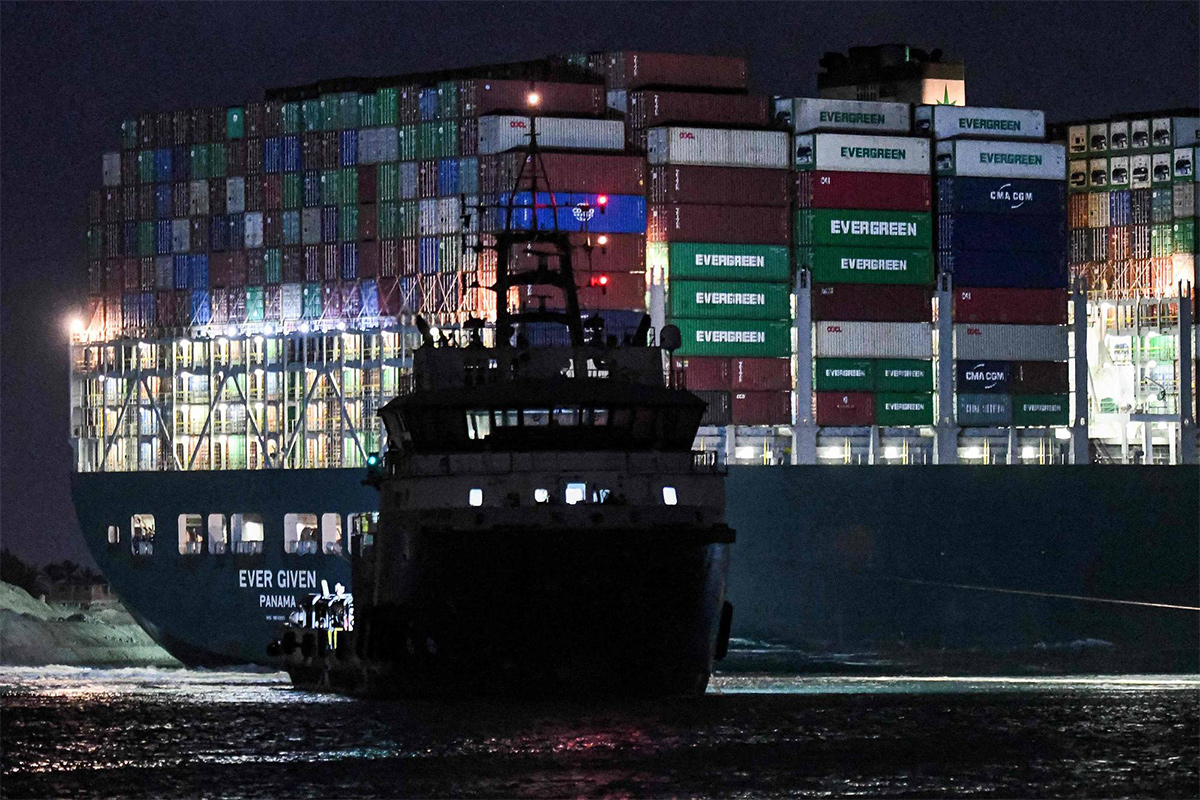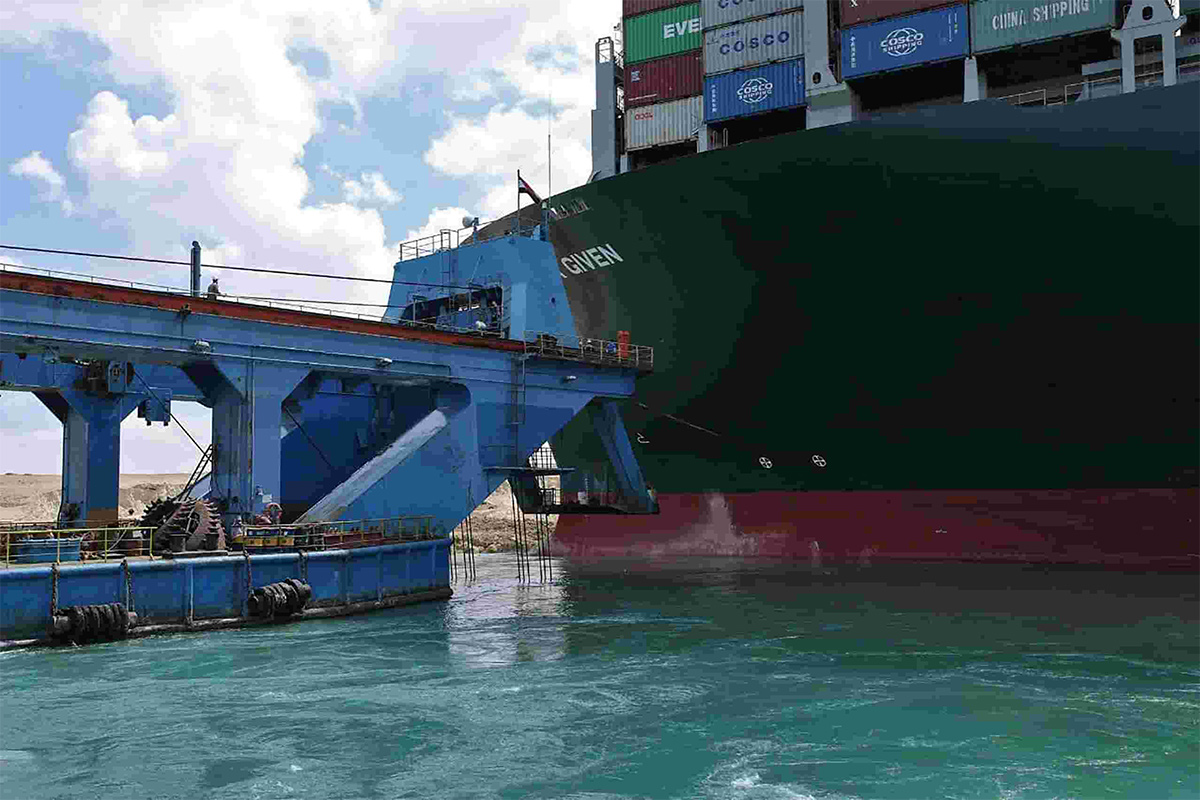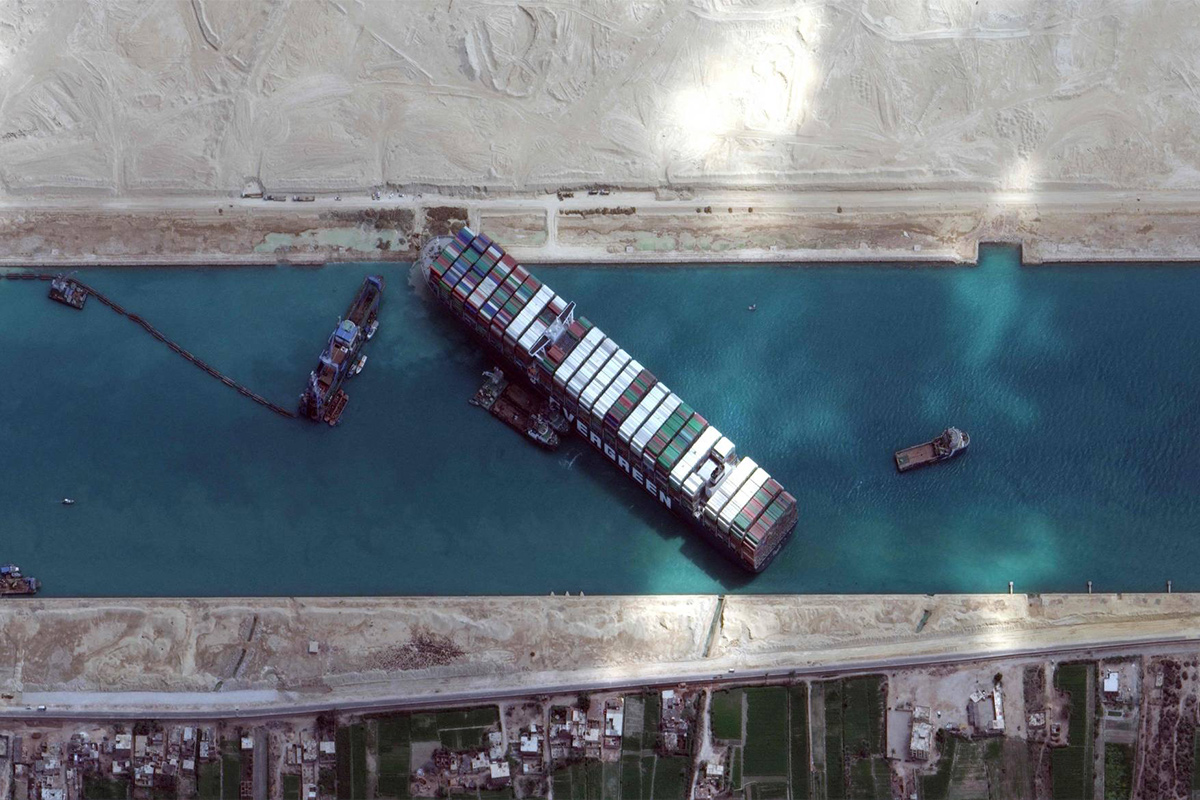Suez Canal earns record revenue of $7.9 bn in 2022
"The revenues of 2022 are the highest in the SCA's history," Osama Rabie, chairman of the Suez Canal Authority (SCA), told parliament
For Indian market, this incident could lead to pressurise on certain industries that depend on Europe and the US.

(Photo: AFP)
The owners and insurers of the container ship, which was stuck in the Suez Canal, face claims worth $9.6 billion per day or $400 million per hour, reports said on Monday that cited data from Lloyd’s List.
In addition to this, prices of crude oil slipped after the vessel was freed from the shoreline earlier in the day. This will clear the canal and allow movement on the busiest waterway in the world.
Advertisement
The 400-metre, 224,000-tonne Ever Given became stuck in the Suez Canal last Tuesday and has held up billions in global trade each day.
Advertisement
For Indian market, this incident could lead to pressurise on certain industries that depend on Europe and the US.
It is also believed that there could be pressure for a while on the Indian ports on the west coast as many of these vessels may seek berthing together in rapid succession.

R. Balasundaram, Executive Vice-president, Global Insurance Brokers said Suez Canal blockade, a once-in-a-lifetime type of event is estimated to cause losses in billions of dollars for insurers and the loss of trade per day due to the blockage at close to $9 billion.
He added that the insurance industry is waiting with bated breath at the direction from which claims can arise out of this canal blockage and of course what could be the enormity of the exposure. There are various areas of claims to possibly come up such as demand for GA (General Average) and Salvage guarantee from cargo interests, there could be a claim under the H&M policy or damages against the vessel, business interruption losses, etc. There could be losses due to perishable cargo or the cancellation of orders, hence the claim demand.
Balasundaram said the likely impact of this incident on India is minimal for now but if the blockade continued for days/weeks, pressure could have mounted for certain industries that depend on Europe and the US for critical raw materials/parts or for those industries whose turnovers are driven by exports to these countries.
“Further, as the blockage is removed, it may still take at least a week for all the piled-up vessels to pass through the canal. Some vessels bound for India are among them and it is expected that there couldn’t be pressure for a while on the Indian ports on the west coast as many of these vessels may seek berthing together/in rapid succession,” he added.
On the other hand, crude prices fell after rising 4 per cent over the last few days as the blockage caused by the vessel drove the oil prices towards northward direction.
The Brent crude futures slipped 0.62 per cent to $64.14 a barrel, data on Oilprice showed. Similarly, the WTI crude was also down by 1.10 per cent to $60.30.
The Suez Canal accounts for about 30 per cent of global container ship traffic each day. The blockade has hurt supplies of oil and affected shipping and container rates, leading to a rise in the cost of goods.

As per a BBC report, more than 300 ships were stuck on either side of the blockage since last Tuesday, when the vessel was initially stuck on the shore. Some vessels have had to reroute via Africa.
The 193 km (120-mile) Suez Canal connects the Mediterranean Sea to the Red Sea and provides the shortest sea link between Asia and Europe.
Advertisement